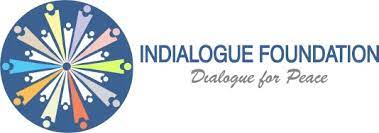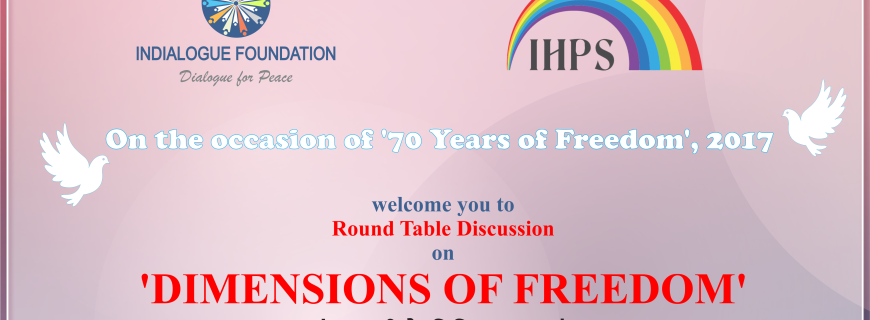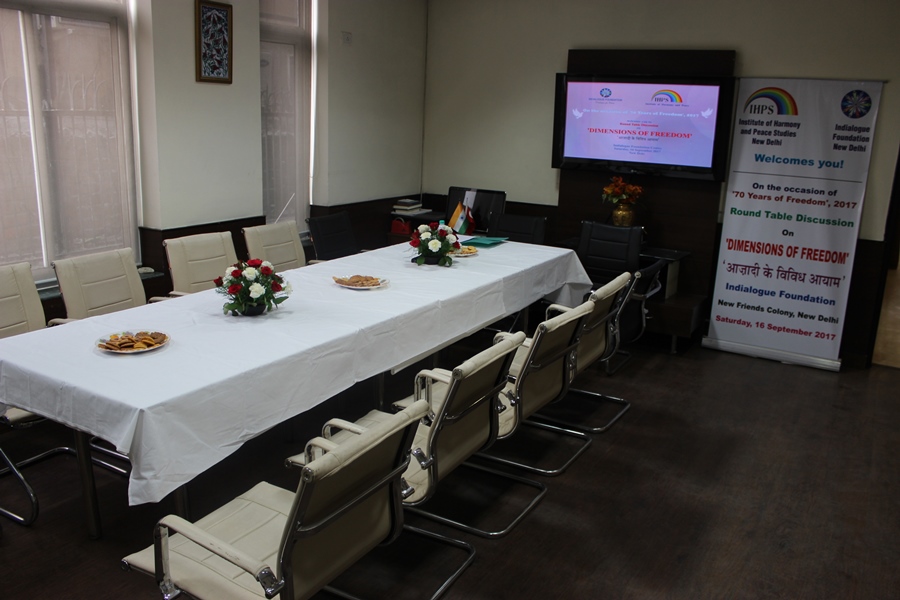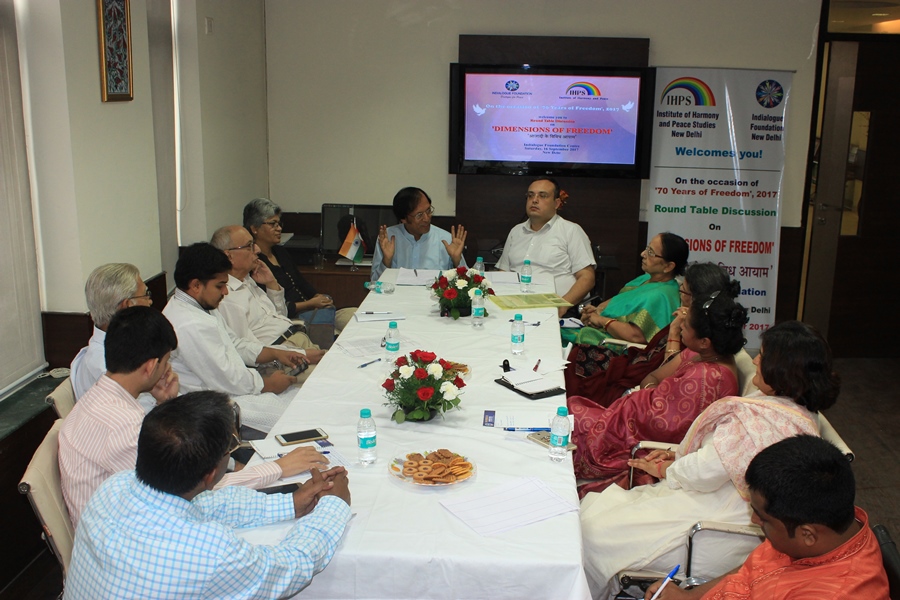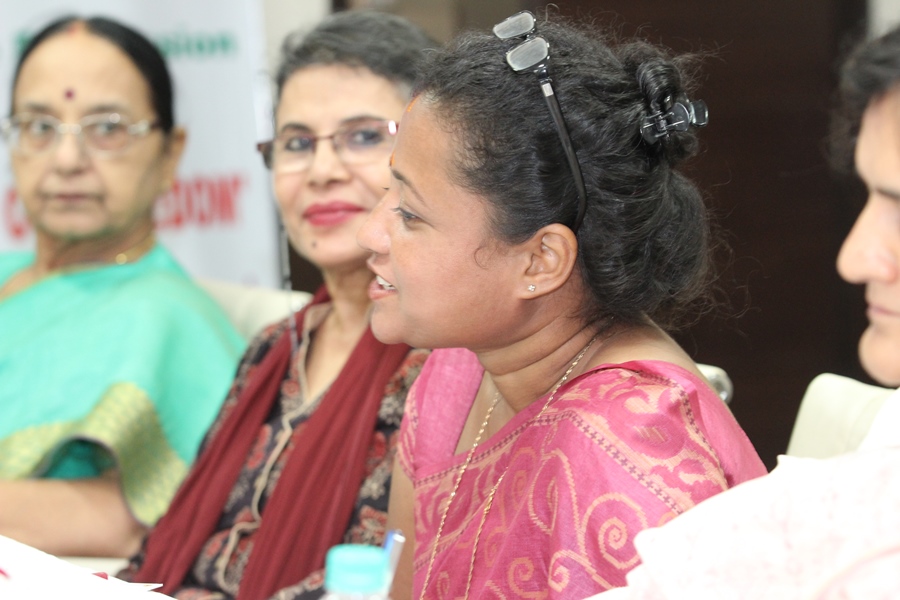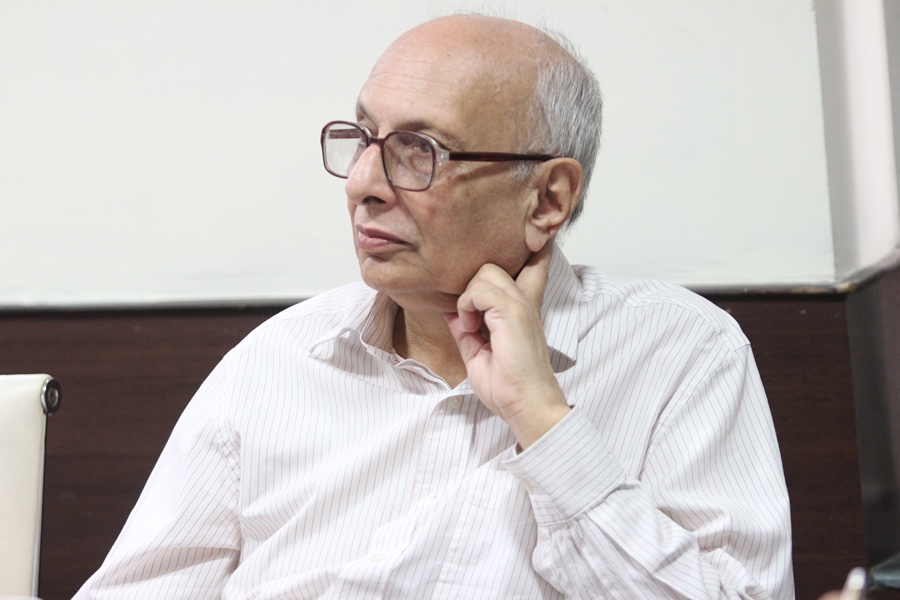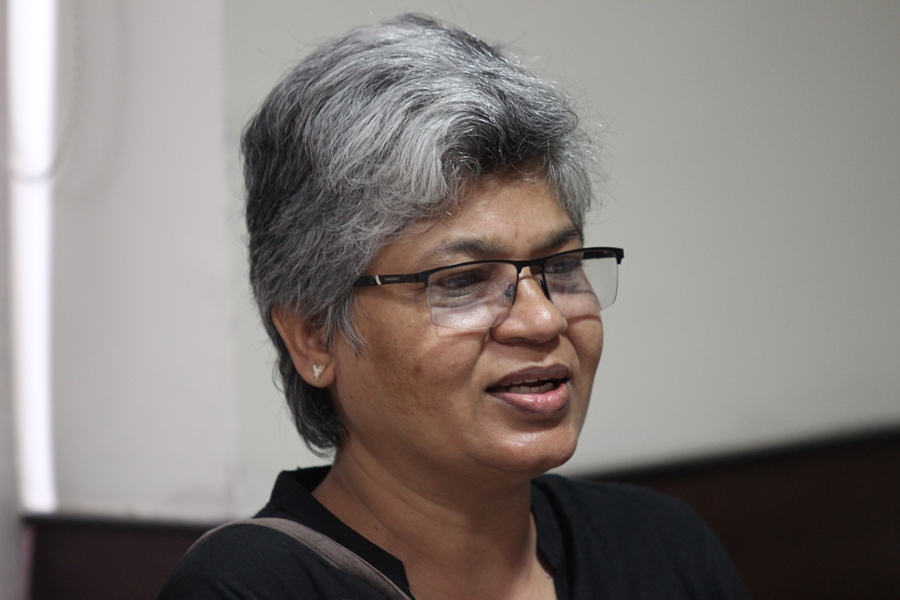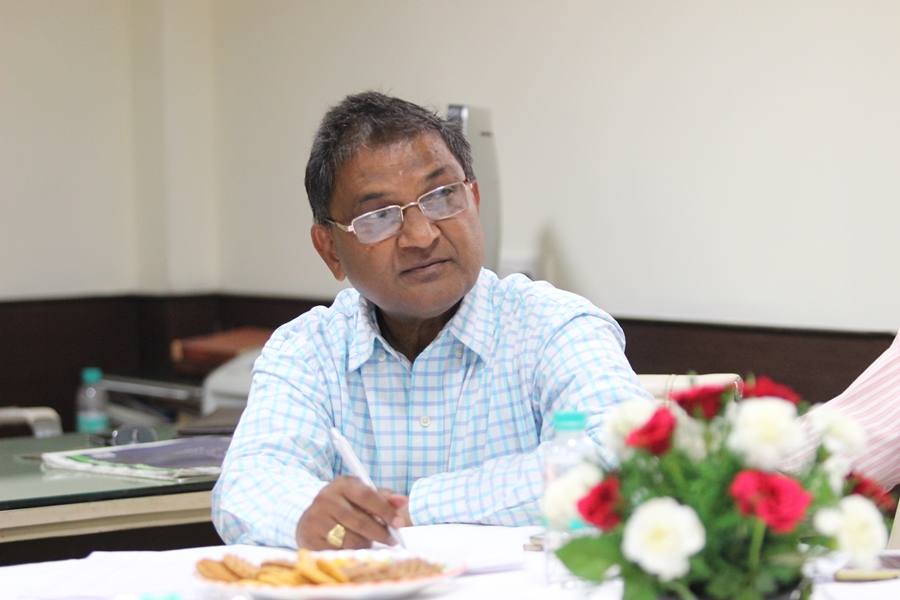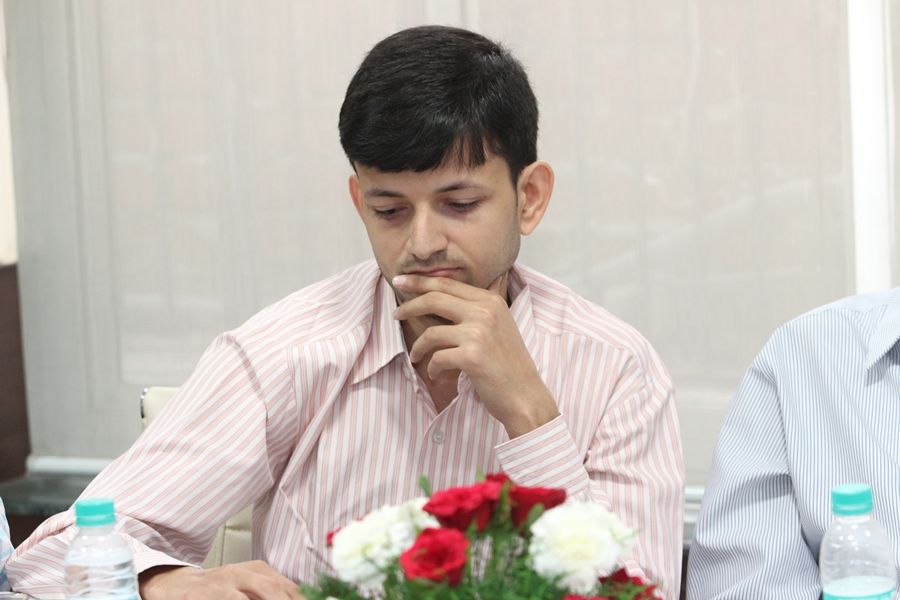On September 16th 2017, Indialogue Foundation in collaboration with the Institute of Harmony and Peace Studies (IHPS) organised a roundtable discussion at Indialogue Foundation, New Delhi on the theme “Dimensions of Freedom”. The discussion was chaired by Dr M D Thomas, Founder Director, IHPS, and attended by over a dozen eminent speakers from different backgrounds.
Mr Bilal Acikgoz, Prof Deepali Bhanot, Prof Shashi Tiwari, Prof Hemlata Mahishwar, Ms Lipsa Mohanty, Ms Monika Sharma, Mr Sunil Kumar, Mr Ghulam Rasool Dehlavi, Mr S G Tiwari, Mr Net Ram Narayan, Mr M Behzad Fatmi and Mr Naveen Chandra were among the participants.
The discussion was designed as a workshop and the speakers were carefully selected to enable deep and comprehensive analysis of the theme.
Ms Monika Sharma, an advocate of the Supreme Court of India, underlined the fact that with rights come some duties too. She said before India’s independence from the British, despite low literacy rate, people had a vision for the country – they were willing to sacrifice something to achieve their objective of self-rule. But now although we fight for our rights, we hardly fulfil our duties as citizens of India.
Prof Hemlata Mahishwar, Head, Department of Hindi, Jamia Millia Islamia emphasised on the need to understand the concept of freedom and to be able to highlight the things from which we need freedom, as not all freedoms are healthy in a community or a nation. She said we must hold on to our rich humanitarian traditions while striving for freedom from some of the evils that have plagued our societies.
Mr S G Tiwari, a prominent scholar of science, noted that people of all the religions participated in the freedom movement of India and said we need to protect and promote that spirit of unity in the independent India too.
Deepali Bhanot, former professor of Delhi University, said while fighting for fundamental freedoms we must not forget that we have some responsibilities as human beings. She said we are obliged to perform some duties towards our families and societies, and abdicating them would undermine our freedom in the long run.
Mr Ghulam Rasool Dehlvi, a scholar of Islam, commented that before independence, even though Indians were under the grip of the British physically, they were free in mind and thoughts. During the freedom movement, there was a sense of great harmony among people of all religions, which seems to be eroding now.
Ms Lipsa Mohanty, Director, Corporate Ashram, Faridabad, said that after independence, industry and trade in India have flourished. But in order to make huge profits we have compromised with the business ethics. We hardly differentiate between the ethical practices and the non-ethical practices in business, which is against our civilisation and culture.
Mr Sunil Kumar, President, IC Centre for Governance, New Delhi, argued that in order to understand freedom in the right sense we need a broad vision, which is clearly missing. It is not possible to appropriate freedom without assuming the sense of equality.
Mr Net Ram Narayan, Secretary, Valmiki Foundation, New Delhi, commented that after independence, there have been more differences than unity in the country – whether it is at the level of society or even within a family. Humanitarian values are getting lost rapidly which should not be allowed.
The Secretary-General of Indialogue Foundation, Mr M Behzad Fatmi briefly talked about the concept of political freedom. He said political freedom concerns the role of government in providing for both positive and negative freedom – both freedom from and freedom to. For instance, freedom from epidemics, economic catastrophe, unscrupulous businesses and so forth; and freedom to vote in elections, travel freely, breathe and drink clean air and water respectively etc.
Making the concluding remarks, Dr Thomas called for making optimism the treasure of life and working together to remove all those things that undermine the freedom in our country and the society. With the purpose of moving forward in the direction of the diverse aspects of freedom, we have to keep our minds open so we can see goodness in others too. He added that all that is good and positive are the gifts of God and they are the common cultural heritage of the humankind.
Page Hits–3224
